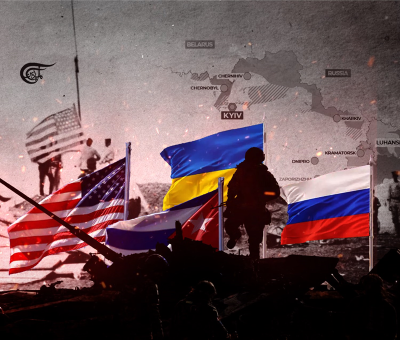Towards a “Long War”, No Diplomatic Solution in Sight: Biden to Name a US Military Operation for Ukraine

To receive Global Research’s Daily Newsletter (selected articles), click here.
Follow us on Instagram and Twitter and subscribe to our Telegram Channel. Feel free to repost and share widely Global Research articles.
***
Two things that point to the notion that Washington is supporting a long war in Ukraine, and truly doesn’t think there will be a diplomatic solution or cessation of violence there anytime soon: one, the $3 billion in recently announced military transfers is a “multi-year military investment” including weapons that won’t be available via defense contractors for at least three years.
Secondly, a little nugget dropped on us Wednesday night: Biden plans on “naming ” the U.S. military assistance mission in Ukraine and making it a separate command with its own general. You know, like Operation Desert Storm, Operation Gothic Serpent, Operation Uphold Democracy, or Operation Unified Protector. We can expect the name, when it comes, will be heavy on the righteous benefactor angle, softer on the sword. But it is nevertheless a military operation, and that carries with it some practical, and serious implications. From WSJ:
The naming of the operation formally recognizes the U.S. effort within the military, akin to how the Pentagon dubbed the missions in Iraq and Afghanistan Operation Iraqi Freedom, Operation Enduring Freedom and Operation Freedom’s Sentinel. The naming of the training and assistance is significant bureaucratically, as it typically entails long-term, dedicated funding and the possibility of special pay, ribbons and awards for service members participating in the effort. The selection of a general, expected to be a two- or three-star, reflects the creation of a c
ommand responsible to coordinate the effort, a shift from the largely ad hoc effort to provide training and assistance to the Ukrainians for years.
This does not seem like a formula for bringing the war to a swift end.
This seems like an all-too familiar set up for a “long hard slog.” Ukraine may be in the driver’s seat today, but the West, which most certainly includes the hawkish UK foreign policy elite, appears to be more interested in seeing this through as this era’s Soviet-Afghan war, or the U.S. war in Afghanistan itself, which took two decades before Washington finally threw up its hands and walked away.
Russia, for its part, just announced a plan to expand its military forces, signaling its own commitment to the long war.
Rather than putting energy into getting both sides into a position where they can begin talking about a ceasefire and some sort of negotiated settlement, Washington is naming a new command. If this is not acknowledging a deeper level of U.S. military involvement, what is it? And if so, why shouldn’t the American people be wary?
“This move could signal to other actors in the conflict — particularly the Ukrainian and Russian governments — that the United States is planning on getting significantly more directly involved in the war itself. That of course could lead to the war being prolonged and raise the risk of escalation between the United States, NATO, and a nuclear-armed Russia,” says Dan Caldwell, senior advisor to Concerned Veterans of America.
“Putting a name on an operation is far more significant than merely coming up with a catchy tagline. It confers an intent to provide long term, sustained, and expensive support to one side of a war that we are not fighting,” adds (Ret.) Lt. Col. Daniel Davis, senior fellow and military expert at Defense Priorities. It’s curious, he added, “especially as the United States is suffering its highest inflation in four decades, recently saw record-high gasoline prices, and as many experts warn a recession may hit this winter.”
Caldwell suggests this could allow the Pentagon to carve out a protected fund for the war. “Establishing a formal, named-mission or military task-force specifically for Ukraine could further open the door to moving funding for the war in Ukraine to the Overseas Contingency Operations budget, which is essentially the Pentagon’s slush fund. That could be one of the primary motivations here – the Pentagon wants a steady stream of funding from a source that Congress has shown a lack of willingness to properly oversee.”
That concern, and for the trajectory overall, should trigger lawmakers’ radars, because whether they want it or not, they bear a role, said Davis.
“If there is to be any long-term and costly diversion of American resources to support someone else’s unwinnable fight, the U.S. Congress must weigh in and the people of our country must have a chance to make their opinions known. But no matter what, it’s not up to the White House and Pentagon alone to decide what this country does and doesn’t support long term.”
*
Note to readers: Please click the share buttons above or below. Follow us on Instagram and Twitter and subscribe to our Telegram Channel. Feel free to repost and share widely Global Research articles.
Featured image is from Al Mayadeen English
This article has been archived for your research. The original version from Global Research can be found here.


